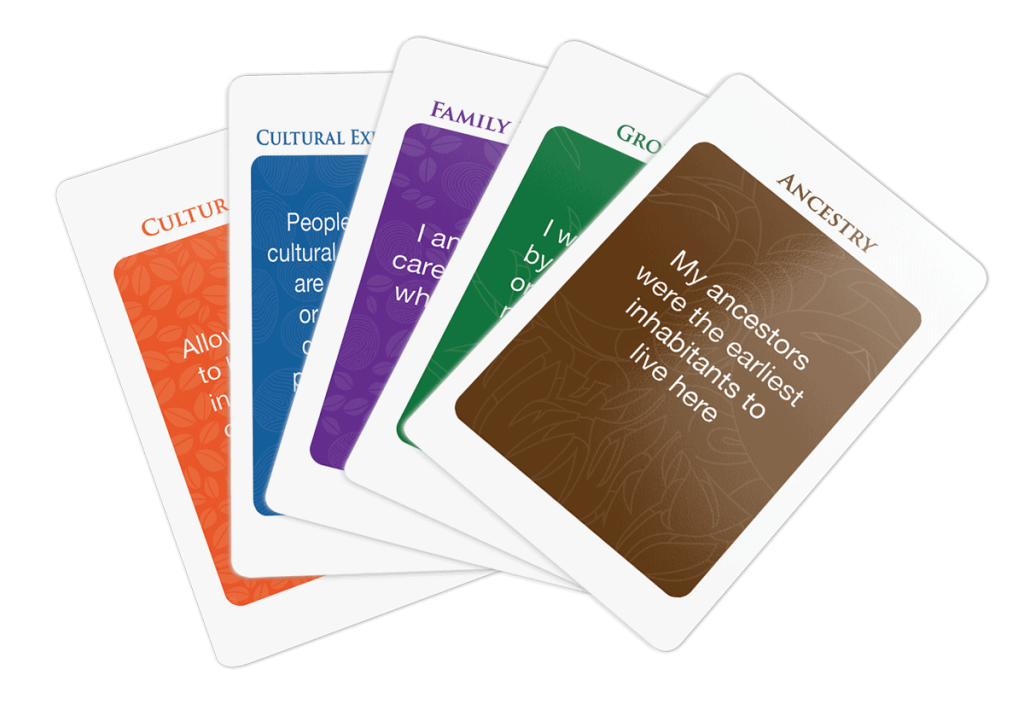Instructions
A simple how-to guide in setting up and using I Am From Cultural Conversation Cards. For more detailed information, such as how to transition to the Gospel, please download the PDF on the page.


TYPES OF CARDS
Guide Cards (5) - These cards provide introductions, directions and questions that correspond to each of the five topics.
Topic Cards (48) - These cards help people process up to five influential aspects of culture. If you are using all five topics, we encourage the following order: Ancestry, Growing Up, Family Expectations, Cultural Values, and Cultural Experiences. (Note: When someone indicates a card is not true for them, it generally means something else is true. There are no “opposite” Topic Cards such as “I like jazz” and “I don’t like jazz”.)
Wrap Up Card (1) - These cards provide optional questions to give people more space to process the conversation and their lives.
Gospel Transition Card (1) - This card contains a sample gospel transition and thoughts on how to connect the truth of the gospel to people’s deep desires and unique cultures.
How to begin the conversation
To introduce the cards, say something like, “Hi, my name is _______. I believe it’s important to listen to people’s cultural and spiritual journeys. I have a deck of cards with topics like family and cultural values. I’d like to invite you to read and sort the cards. Then I’ll ask you about them. Would you share your thoughts with me?”
HOW TO USE THE CARDS
Read the Guide Card out loud for the first topic you wish to discuss. Use it to understand the topic and know what to do. Then ask the questions on the back of the card. Continue to do this with the other topics. (Note: You can listen only or share your answers to the questions as well.)
WHAT TO DO AFTER THE TOPICS
After the last topic you can ask some or all five questions on the Wrap Up Card. Even if you don’t use the Wrap Up Card, always give people the opportunity to leave the conversation or change the subject before seeking to talk more. Say something like, “Thank you for going through this with me. I enjoyed listening to you. I hope we can talk again sometime.”
How to use with care
These cards can surface painful family history and personal experiences, especially for ethnic minorities/people of color. We must listen to people’s stories with empathy, respect and humility. The following steps will help you prepare your heart and attitude before using these cards with others, especially people whom you don’t know or don’t know well:
1. Use these cards to reflect on your own race, ethnicity and culture - including your privileges and
pains.
2. Use these cards to talk to friends who are of a different race, ethnicity or culture. Ask them for
honest feedback.
3. Seek to know people for who they are, not as representatives of their race, ethnicity or culture.
4. Educate yourself on the historic and current challenges ethnic minorities/people of color
experience.
5. Acknowledge others’ pain and resist the temptation to try to “fix it” or share your own pain or guilt
in response. Hurting people need their pain to be acknowledged with empathy and should not feel the
need to comfort you.
6. Trust God to work. Let conversations go where God leads them. Love others by listening well and
being a safe person.
More questions?
More questions? If you have more questions about how to use I Am From, please refer to the FAQs found on the home page or view and download the full I Am From guide below. The PDF covers how to best use the cards in group settings, different approaches, how to transition to the Gospel, important definitions, and much more.
